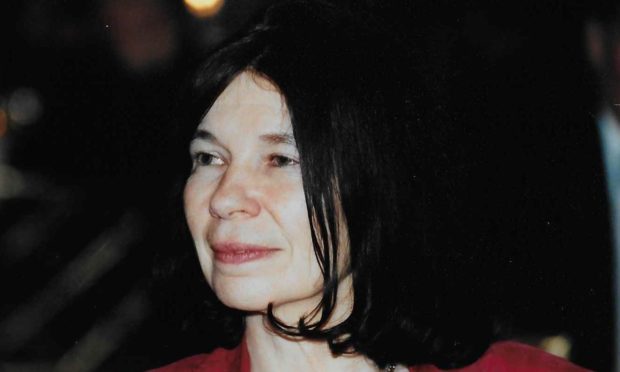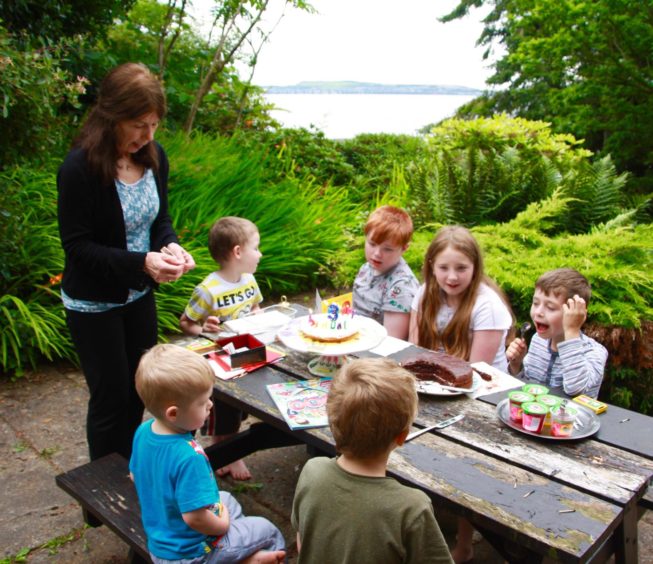Tributes have been paid to internationally-acclaimed former University of Dundee scientist Professor Lady Tricia Cohen, who has died at the age of 76.
Fellow academics from the across the globe have paid tribute to the molecular biologist who made a number of breakthroughs in the field of gene cloning.
She was also a keen golfer, cake-baker and musician.
David Barford, from the Medical Research Council’s molecular biology laboratory at Cambridge, said: “I very much admired Tricia and valued her greatly as a friend and colleague.
“We had an extremely enjoyable and productive collaboration. Tricia had a major influence on my career, as well as many others. I still remember clearly how helpful, generous and supportive she was when I moved to Dundee now exactly 30 years ago.”
Husband and colleague Philip Cohen said he had received messages from friends and colleagues across the world “almost all mentioning her kindness and modesty.”
Born Patricia Townsend Wade in Worsley, Lancashire, Tricia was the daughter of Dr Charles Henry Townsend Wade, later the Chief Medical Officer of Lancashire, and Elfrida (Bobbie) Robertson Wade, a physiotherapist.
She was brought up in Greenmount near Bury and educated at Bolton School. She obtained a B.Sc in Biochemistry in 1966 and a PhD in Physical Anthropology in 1969 while studying at University College London (UCL)
Tricia met her future husband Philip, later Sir Philip, Cohen at UCL where were undergraduates in the same Biochemistry Class. They were married in February 1969 in Guildhall in London.
She joined the Biochemistry Department at the University of Dundee in October 1971 after two years postdoctoral research at the University of Washington, Seattle, USA, where she studied variation in human brain proteins.
She was employed on a part time contract by the University of Dundee between 1973 and 1990 as she wanted to spend time with her children Suzanne, born 1974, and Simon, born 1977.
A chance encounter in 1981 with another scientist sparked an interest in gene cloning.
Her research went on to uncover two distinct gene families of enzymes called protein phosphatases and she also identified many novel phosphatases previously missed by biochemists.
These discoveries established her international reputation and led to many invitations to lecture across the globe.
Tricia and husband Philip became the two founding Principal Investigators of the MRC Protein Phosphorylation Unit (PRC-PPU) in Dundee in 1990. Tricia was appointed as the Head of Molecular Biology,
Recognising her seminal achievements, the University of Dundee appointed Tricia to a Professorship in 2001.
Tricia trained more than 50 PhD students and postdoctoral researchers over a 25 year period from 1985 to 2010, many of whom subsequently became leaders in both academia and the pharmaceutical industry.
Tricia had many other talents, including cake-making skills. Her husband and colleague Philip said she loved cooking them for and with her children and six grandchildren.
Tricia played the violin and was a member of the UCL orchestra at University. Good at sport, she excelled at Lacrosse and took up golf in her 50s. She was a member of Downfield Golf Club, Dundee and the Duke’s course at St Andrews.
Tricia and Philip bought their first house in Invergowrie in 1972, only moving “next door” in 1988 to a new house they designed and built in their garden with the help of a local architect and builder.
Tricia died peacefully at her beloved home from the lymphoma that had been diagnosed two and a half years earlier.
She is survived by her husband, two children and six grandchildren.











